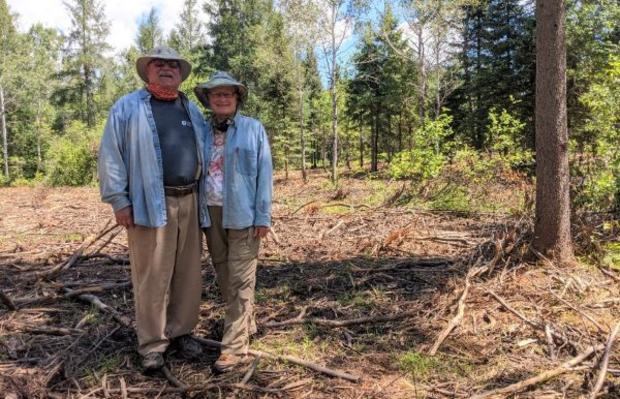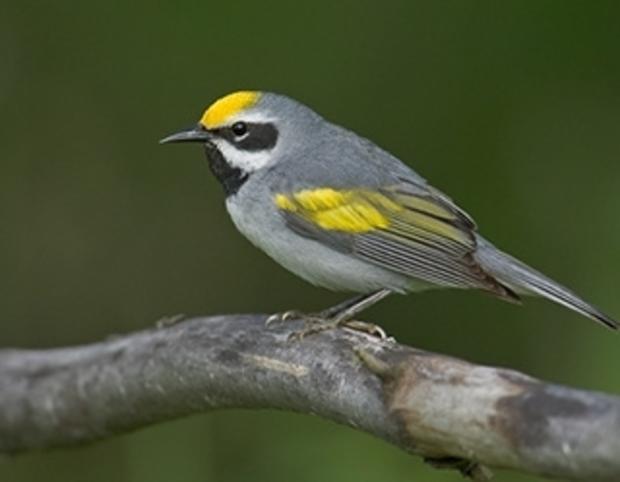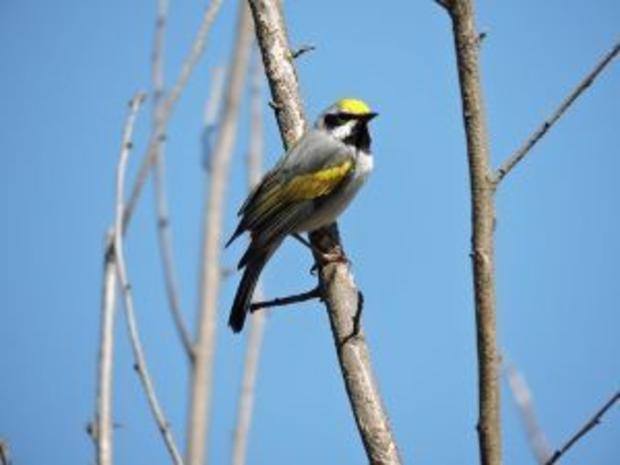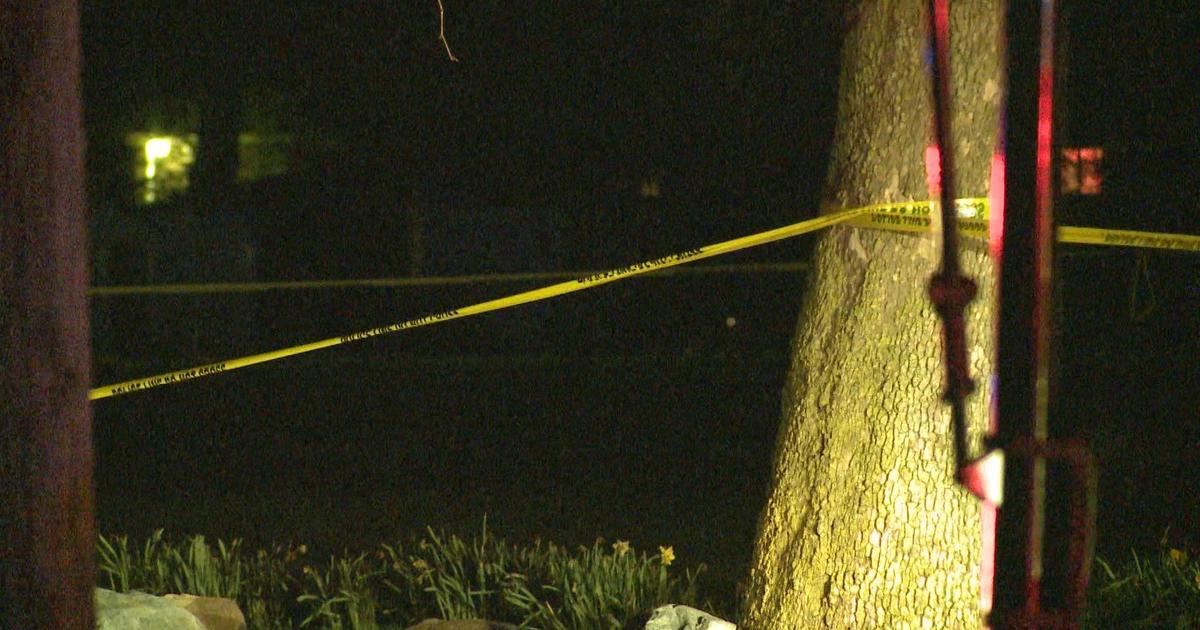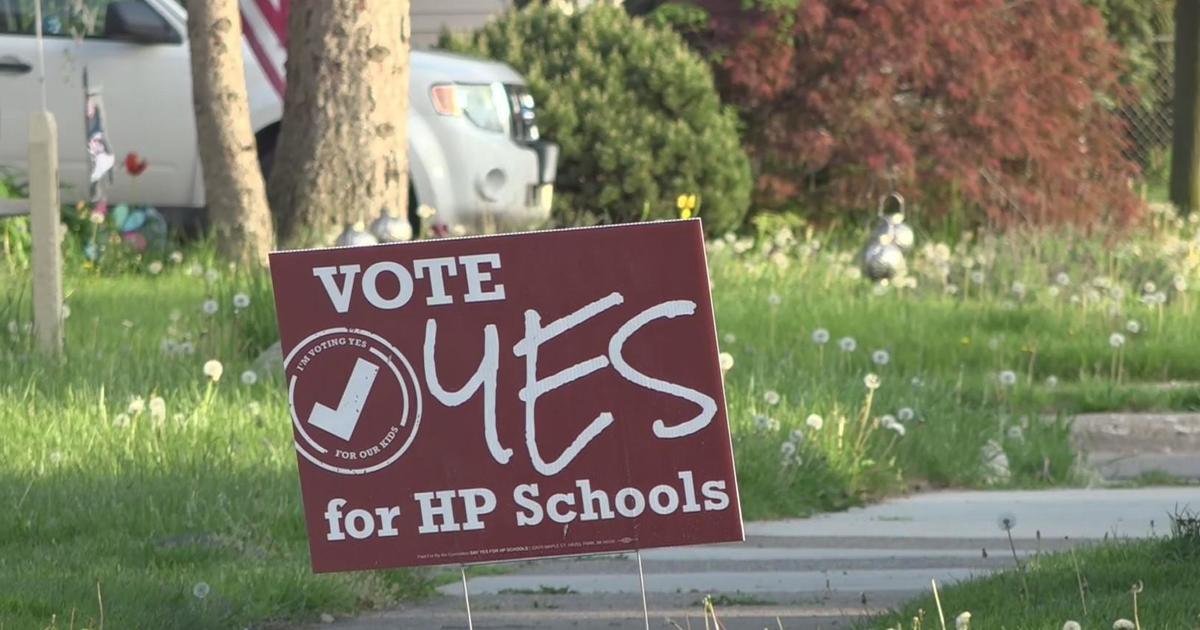UP Couple Invites Rare Birds Using Forest Management
(CBS DETROIT) - Camping and exploring nature are passions for Bill and Betty Perkis, an Upper Peninsula couple who enjoy planning their vacations around visits to national parks. The two recently decided to bring a bit of nature home by actively managing their property for wildlife. The Perkises sought the help of forestry and habitat experts to incorporate sustainable forestry techniques that would improve their 40 acres for species like the golden-winged warbler – a rare, yellow and gray songbird that prefers young forests for breeding and nesting.
The property originally consisted of 25 acres of cedar swamp and 15 acres of overgrown tag alder, an aggressive, shrubby tree that prevented other forest types from thriving.
"The tag alder made it really hard to enjoy the property," said Bill Perkis.
In addition to the tag alder, the property presented another challenge: a legacy of turn of the century mining and logging practices that left many Upper Peninsula forests, including the trees on the Perkis property, at the same age. However, a mix of tree types and ages is key to maintaining healthy forest land. Management helps keep forests resilient to the effects of pests, diseases and wildfire.
The Perkis family decided to enlist the help of forestry and wildlife habitat specialists to take an active role in improving the quality of their forest land.
Working with staff from the American Bird Conservancy, the Gogebic County Conservation District and the Natural Resources Conservation Service, the Perkis family formed a plan to sustainably manage their land for improved forest health and wildlife habitat.
"The biggest step was to have 15 acres of tangled trees cut and chipped to let more light reach the forest floor," said Betty Perkis.
They contracted with Reyco Forestry Management LLC to chip the overgrown tag alder and control invasive plants.
"This action helps spur the growth of new, young forest to help species including American woodcock, white-tailed deer, ruffed grouse, wild turkey and the rare golden-winged warbler," said biologist Kayla Knoll of the American Bird Conservancy, who is advising on the project.
To meet the Perkises' wildlife goals, the plan called for retaining mature trees that produce foods like nuts, buds and berries. Branch snags and woody debris were also left on the landscape to provide cover for dens, prime spots for grouse drumming and homes for amphibians and insects.
The Perkis family also joined a regional conservation effort called Improving Forest Health for Wildlife to manage habitat for the golden-winged warbler. This rare, yellow and gray songbird prefers young forests for breeding and nesting, and its presence often indicates high-quality, healthy forests.
"The focus of this effort is to create habitat for these at-risk songbirds while also encouraging sustainable forestry and diversity, which in turn benefits other wildlife species," said Tom Berndt, NRCS district conservationist in Kingsford.
NRCS covers part of the cost for implementing practices such as early successional habitat development, forest stand improvement and brush management.
Thanks to this broad partnership that started with one family's passion for the outdoors, what was previously dense, overgrown brush is now diverse and thriving forest land. The Perkises plan to share their success and make their property available to school groups and others interested in learning more about sustainable forestry.
"Families, hunting clubs, and other private forest landowners managing for wildlife habitat and timber production can benefit from sustainably managed forests," said Knoll.
Looking ahead, the Perkis family is eager to walk their property in hopes of spotting golden-winged warblers. Their plans include further development of Betty's pollinator gardens to provide even more natural beauty and habitat.
Want to start managing your forest land for health and habitat? Here are several resources to connect with to find information, planning and financial support: The DNR's Forest Stewardship Program, The American Bird Conservancy and Natural Resources Conservation Service local office.
MORE FROM CBS DETROIT: Thieves Use Computer Technology To Steal 6 Vehicles Off Car Lot
@ 2020 CBS Broadcasting Inc. All Rights Reserved. This material may not be published, broadcast, rewritten, or redistributed.
